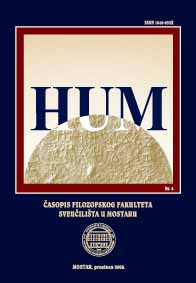MOĆ I SOLIDARNOST U NAČINIMA OBRAĆANJA
POWER AND SOLIDARITY IN MODES OF ADDRESSING
Author(s): Marijana SivrićSubject(s): Language and Literature Studies
Published by: Filozofski fakultet Sveučilišta u Mostaru
Keywords: pronouns T/V; power; solidarity; polarization; “ideological square”; intimization; conversationalism.
Summary/Abstract: The paper deals with the analysis of the pronouns T/V in English and Croatian, modes of their use as well as the relationships that those pronouns signify. Firstly, the author discusses the historical origin of the forms T/V, and then the relations of power and solidarity which are expressed with these pronouns. The power relationship is shown through the nonreciprocal usage of the pronouns T/V or non-reciprocal modes of address, e.g. Title + surname + name opposed to Name. Such usage can denote the difference in age of the speakers or the difference in their social status or position. On the other hand, the solidarity relationship is expressed through reciprocal use of T/V or modes of address, e.g. Surname + name opposed to Surname + name or Name opposed to Name. Special power relationship denoted by the non-reciprocal use of pronouns can be ideologically marked. Therefore, pronouns can denote the polarization expressed through Us/Them, as the members of Our and Their group.
Journal: Hum
- Issue Year: 2008
- Issue No: 4
- Page Range: 118-132
- Page Count: 15
- Language: Croatian

